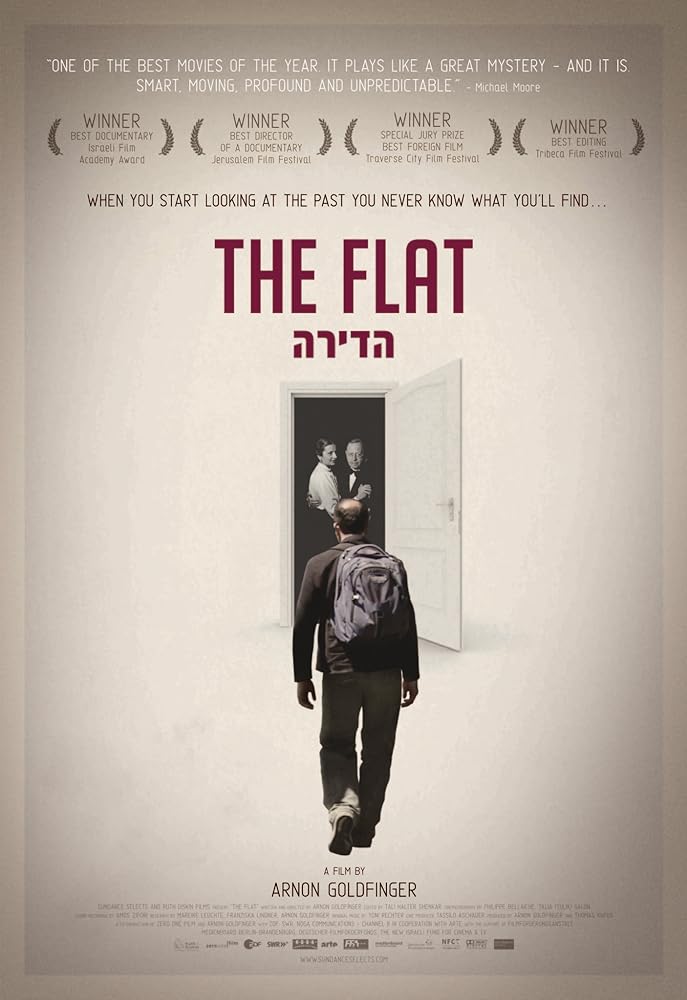Ken Livingstone
There was an editorial in the Guardian on 5 April 2017 about the Labour Party and Ken Livingstone’s suspension that to me seems like a clear example of the type of manipulation and deceit intended to silence discussion about this aspect of WW2 and Israeli history. Interestingly the Guardian didn’t allow comments, as is normally done for their editorials. Hmmmm? Could that be a sign the authors/publishers maybe knew that the content of their rhetoric could be easily and convincingly refuted, by anyone with a little historical knowledge of the subject, and didn’t want to permit that?”
— Chris Crookes 9 April 2017

The Flat (הדירה)
The Flat (הדירה) is a 2011 feature documentary film, an Israeli–German co-production written and directed by Arnon Goldfinger.
“After his grandmother’s death Arnon Goldfinger began, all alone, to film the clearing out of his grandmother’s flat. By chance Goldfinger met cinematographer Talya (Tulik) Galon, who lives not far from his grandmother’s flat, and told her about the flat. She helped with the cinematography (Philip Bellaiche entered the production later on). They filmed the family rummaging through closets, the items with their old-fashioned European flavor that were pulled out one after another – and the dozens of garbage bags that filled up quickly. But Goldfinger and the others did not know exactly what they were looking for. And then it happened: Suddenly among the cartons of gloves and shoes, the fox furs and the purses, the books and the boxes with letters – a pile of old German newspapers appeared. Goldfinger did not imagine that this would be the first clue that would lead him on an emotional journey that would be both upsetting and confusing, and that would reveal a family history that for years had been repressed and hidden. At that point the research broadened and new characters emerged, unexpected ones. The crew expanded until the point that the film became a German-Israeli co-production with Zero One Film coming on board as co-producers. ”
“Goldfinger gradually discovers that his grandparents had a close personal relationship with a high Nazi official, Leopold von Mildenstein, head of the SS Office for Jewish Affairs (prior to Adolf Eichmann). Mildenstein traveled to Palestine in the company of the Tuchlers in the 1930s and continued a friendship with the Tuchlers after the war.”
(2019) Hidden in plain sight: post-holocaust mnemonic objects and material traces in Arnon Goldfinger’s The Flat (הדירה). Holocaust Studies. Special Issue on Contemporary Holocaust Film. Holocaust Studies: A Journal of Culture and History. Gerd Bayer.
Barkai, Avraham. German Interests in the Haavara-Transfer Agreement 1933-1939. Leo Baeck Institute Year Book 35, no. 1 (1990): 245–266.